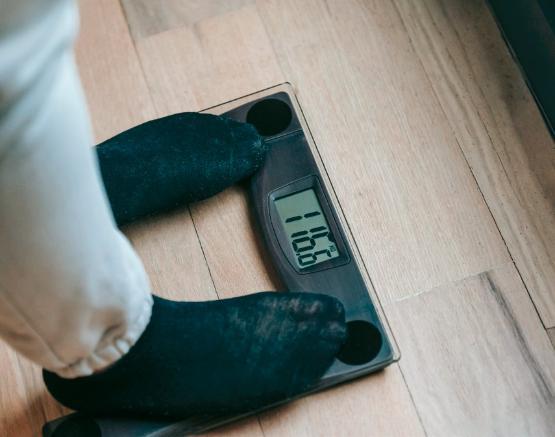Why we need to help South Asian women address a growing obesity problem
When Dr Halima Iqbal was growing up, she faced discrimination because of her South Asian background. While her parents tried to retain a semblance of Pakistani culture at home, to Halima, it was a cultural “tug of war” that led to an identity crisis. She sought comfort in food and became overweight. Although she has since managed to maintain a healthy body weight, her experience of how discrimination is linked to obesity, had a lasting effect.

Now the University of Bradford academic, who has a Master’s in racism and ethnicity studies and a PhD looking at obesity in British Pakistani women, is set to co-investigate a project that aims to tackle some of these issues.
The 18-month study, funded by a grant of £143,687 from the National Institute for Health and Care Research, and run in conjunction with Obesity UK and academic partners at Leeds Beckett university, aims to create peer-led weight management support groups for least heard populations.
Halima is running the work package tailored to South Asian women, who are at greater risk of obesity and the conditions related to it, and who are among those least likely to access weight management support.
Halima, pictured above, said: “Obesity is a growing problem in the population more generally, but it affects South Asian women more than most, because of various structural and cultural barriers. Where there is provision to offer support, it’s often not accessible, or fit for purpose because there has been a lack of involvement from South Asian women to identify their unmet needs. These issues include the timing and location of where sessions are run, who facilitates the sessions and language barriers.
“My own research in Bradford has identified that many South Asian women are health conscious and desire support to manage their weight yet feel powerless and unable to make positive changes towards their health. This is partly to do with education but also delivery.”
Halima plans to set up a series of women-only support groups in Bradford that will meet at convenient locations and times and be led by someone from the same culture.
“Part of the reason for this is obesity is linked to so many other health conditions that limit life expectancy, such as diabetes and cancer. What we’re trying to do is to educate people about diet and physical activity and in so doing ensure a healthier population. If I were to ask you whether you want your children or grandchildren to grow up healthy and enjoy long lives, the answer would be yes, but in many ways we’re not doing that and that’s what this project aims to address.”
Principal investigator Professor Louisa Ells said: “We are thrilled and privileged to receive this award, which we hope will really help make a difference to the support and research co-production in some of our least heard and underserved communities affected by obesity.”
Obese individuals are at increased risk of developing a range of ‘co-morbid’ conditions and diseases. Individuals with a body mass index over 35 have an 80 fold increased risk of diabetes than those of a normal body mass index.
According to a study in 2016 black and minority ethnic communities develop type 2 diabetes and cardiovascular disease at almost five to 10 years younger and at lower levels of body fat than their white counterparts. A Diabetes UK study in 2019 found that even within black and minority ethnic communities, some groups have higher rates of type 2 diabetes, such as South Asians, who are six times more likely to develop diabetes than white European populations.
For further information, please visit Halima’s university staff page https://www.bradford.ac.uk/staff/hiqbal36/ or contact Halima at [email protected]
Factfile
Obesity, defined by the World Health Organisation as an abnormal or excessive accumulation of fat that presents a risk to health, is an increasing global public health problem.
In adults, a body mass index of 25 to 29 is considered overweight, and obesity is characterised by having a body mass index of 30 or higher. However, this standard threshold of body mass index has been revised for South Asians as they can develop obesity related disease at lower body max index cut off points.
In Europe, rates have increased by approximately 10-40% in the majority of European countries in the past decade, the most remarkable increase has been in the UK, where it has almost doubled (according to NHS-Digital, 2018).
The most recent available statistics from 2018/19 show that in England, most adults were overweight or obese: 67% of men and 60% of women. Of these, 26% of men were obese and 29% of women (NHS-Digital, 2020).
Data shows differences in prevalence by region. The lowest levels were in London and the highest levels were found in Yorkshire and the Humber, and the West Midlands (NHS-Digital, 2018). Black, Asian and minority ethnic groups and socio-economically deprived populations have higher instances of obesity compared to the wider population. Despite being more common among lower socio-economic groups, it especially affects women within those groups and is more prevalent among women from Pakistani and African-Caribbean communities.
